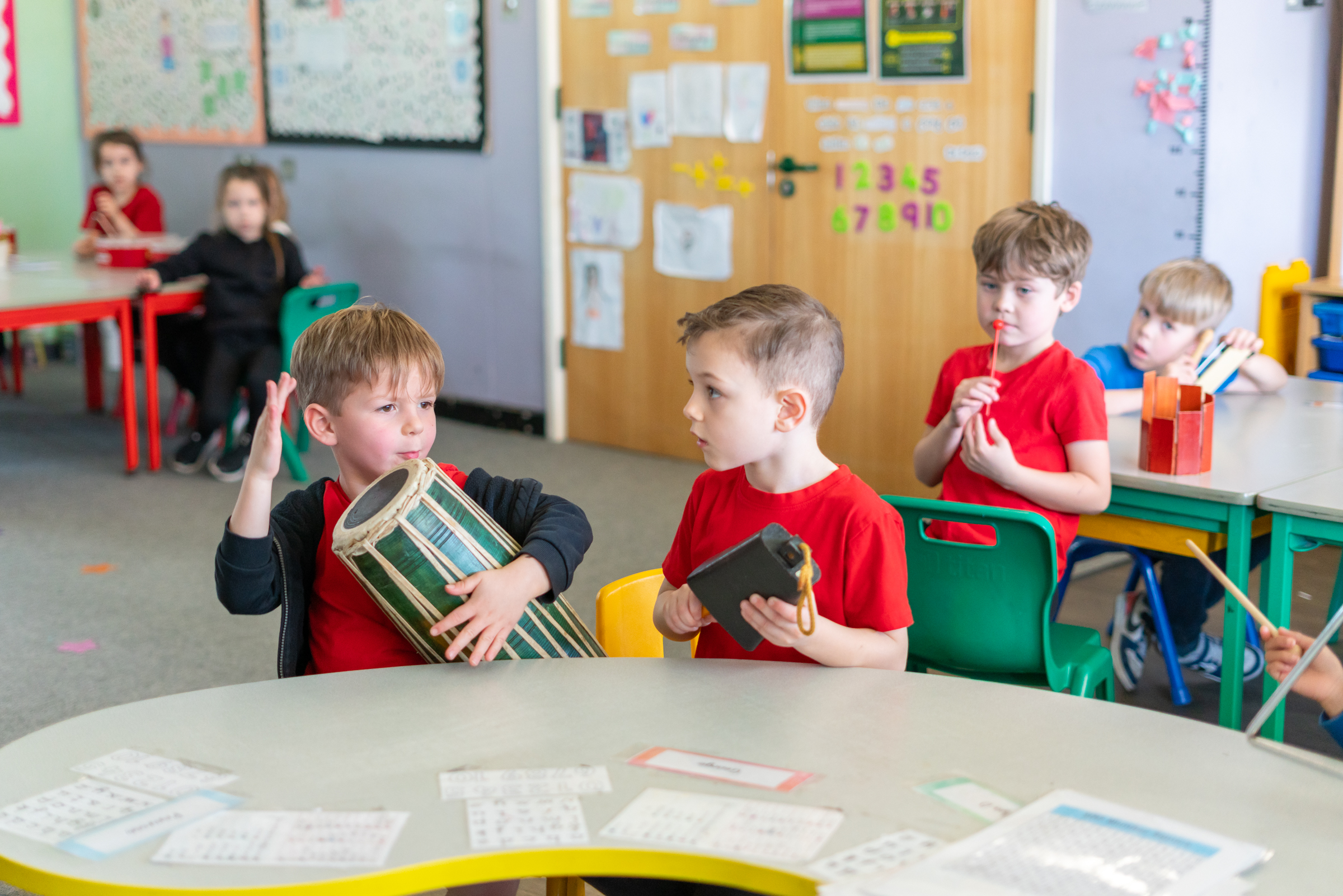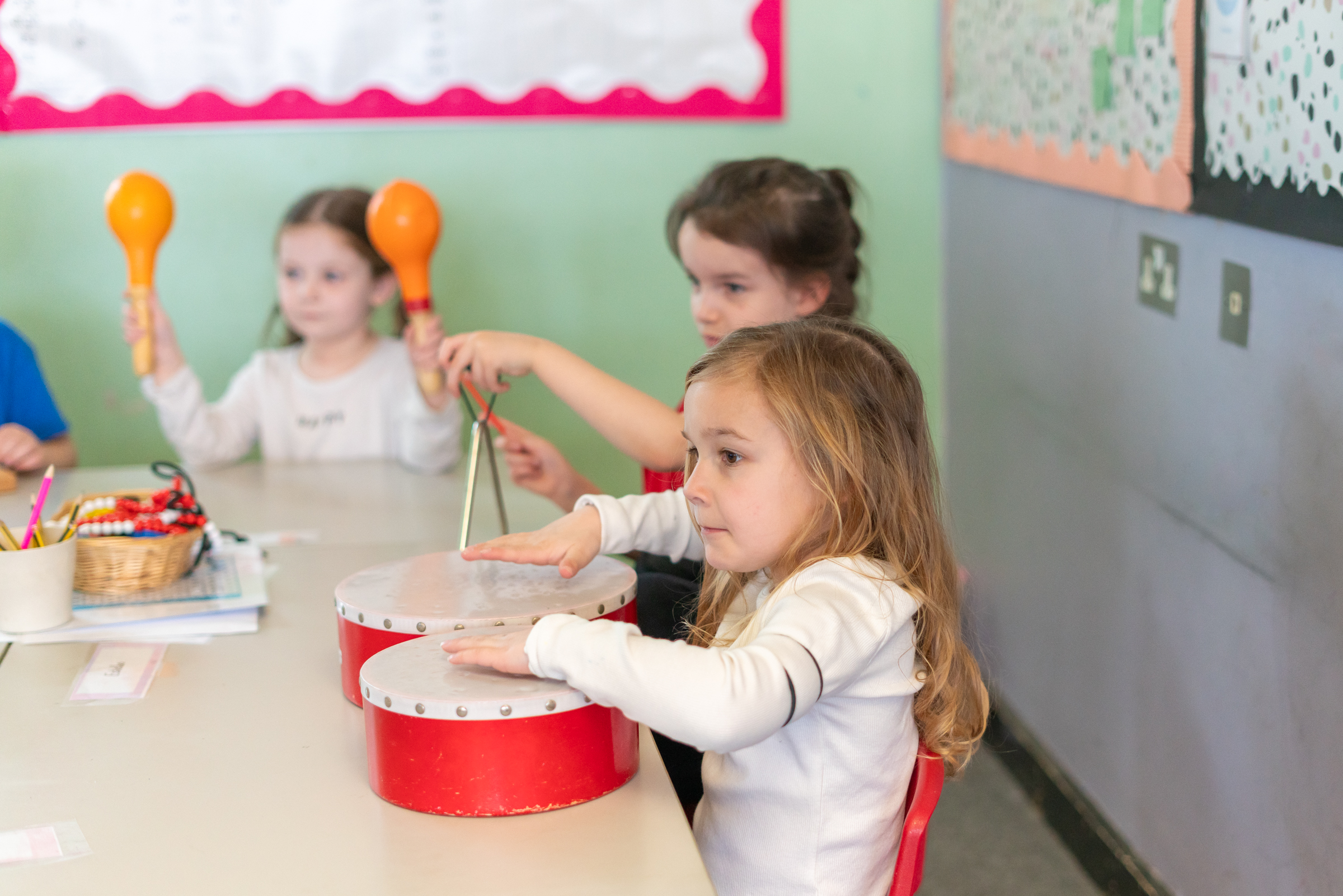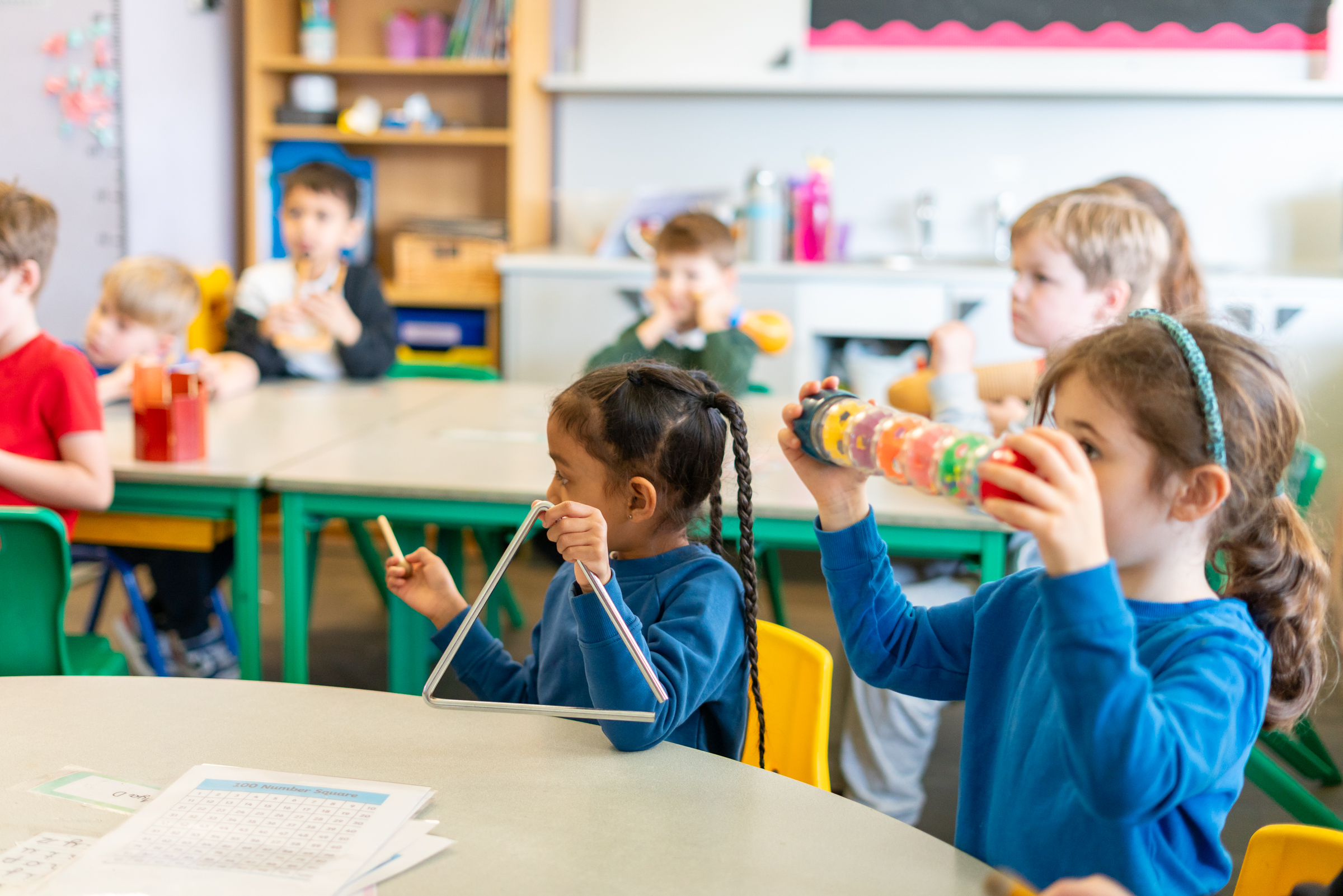Music Subject Leader: Mrs J Stone
Music education improves, develops and broadens the range of creative skills. This is incorporated into daily routines and inspires self-expression through a variety of mediums. Halling primary also works in partnership with dynamics Medway to provide instrument lessons.
Intent
The National Curriculum for music aims to ensure that all pupils:
- Perform, listen to, review and evaluate music
- Be taught to sing, create and compose music
- Understand and explore how music is created, produced and communicated.
Children are given many opportunities to engage in a wide range of musical experiences, including listening, singing, performing, evaluating and composing across a range of historical periods, cultural traditions, and musical genres. Our objective is to develop a love of music and inspire creativity and an appreciation of a wide range of musical styles. We are committed to ensuring children develop an appreciation of the cultural and historical importance of music.


Implementation
Children participate in bi‐weekly class music lessons and singing assemblies. The elements of music are taught as part of classroom lessons, enabling pupils to analyse how music is created. They also learn how to compose, focusing on the different dimensions of music which develops understanding when listening, playing or analysing music. As part of the curriculum, pupils are taught to play, perform, improvise, compose, listen to and appreciate music.
In each daily assembly, music from a different genre is played, thus embedding an appreciation for music within the daily routine as well as enhancing their understanding of the history of music. This music is specially organised to reflect all the major genres and styles of music that are readily available. It is then shared with the rest of the school. Specialist teachers teach a range of musical instruments. The Music Coordinator and other specialist class teachers run several music clubs throughout the year and children from both Key Stage 1 and Key Stage 2 are given the opportunity to perform at a range of concerts both in the community and wider.
Impact
Children will develop an understanding of the different components of musical structure and will be able to enjoy music as a listener, creators or performers. Children will be able to identify music from different historical periods and discuss the similarities and differences between various musical genres.
Children will be confident when performing and will develop a sense of achievement from being part of any school musical clubs or the yearly Year 6 production.

Music in Each Stage
Children learn music in the EYFS under the umbrella of ‘Expressive Arts and Design’. Children are taught to match instruments to their sounds and use technical vocabulary to describe music. They clap rhythms and learn to move rhythmically, keeping time with the music. They listen to a wide range of genres of music to develop an appreciation for the diversity and variety of music in the world. Children in EYFS learn a range of songs from memory and perform and sign together.
Pupils will be able to:
- Use their voices expressively by singing songs and speaking chants and rhymes.
- Play tuned and untuned instruments.
- Listen with concentration and understanding to a range of high-quality live and recorded music.
- Make and combine sounds using the inter-related dimensions.
Pupils will be able to:
- Play and perform in solo and ensemble contexts, using voice and playing instruments with increasing accuracy, control and expression.
- Improvise and compose music using the interrelated dimensions of music separately and in combination.
- Listen with attention to detail and recall sounds with increasing aural memory.
- Use and understand the basics of the stave and other musical notations.
- Appreciate and understand a wide range of high-quality live and recorded music from different traditions and from great musicians and composers.
- Develop an understanding of the history.
Music Progression
SEND Information
Our SEND and disadvantaged pupils are given the necessary support in class to fully access the supported Music curriculum. Learning is adapted where necessary to support SEND/EAL pupils to give equal opportunities for all to be confident in approaching any problems faced. Interventions, support and challenges are constantly revised and adapted to ensure all children are supported in achieving learning. The above areas are robustly and continuously monitored to ensure any gaps in learning are addressed.

